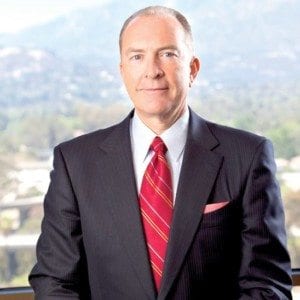
The Middle East has always been a hot spot for corruption but as more companies are moving into the region, the government and multinational institutions have made significant strides towards rooting out corrupt behavior. In Saudi Arabia, for example, there has been some movement. In 2013, the state established a national anti-corruption commission and ratified the United Nations Convention against corruption. Leaders like Sheikh Mohammed bin Zayed, Crown Prince of Abu Dhabi and Deputy Supreme Commander of the Armed Forces, approved a task force to be launched that will investigate government bodies involved in corruption or financial misconduct. The new unit will be established within the Abu Dhabi Accountability Authority.
“Across the globe, we are seeing more commitment from governments to adopt anti-corruption laws similar to the U.S. FCPA and the UK Bribery Act,” said Chuck Harrington, Chairman, and CEO, Parsons, during a keynote session at Ethisphere’s inaugural Middle East Ethics & Compliance Summit in Abu Dhabi, UAE. “There’s more commitment to aggressively enforce those laws; more commitment to cooperate across geographic boundaries to pursue corrupt corporations and individuals; more commitment on the part of companies to adopt and enforce robust anti-corruption policies.” Looking ahead it seems that more developments on the legal and regulatory front will be made in the Middle East amid the issuance of ISO 37001 later this year—the first ISO standard to directly address anti-corruption compliance programs.
The event which was co-hosted by Parsons provided a unique opportunity for leading executives from the regional business community to connect in the interest of advancing corporate integrity and performance. Some hotly-debated topics at the Summit included anti-corruption and enforcement, corporate governance and board engagement, conflicts of interest, third-party integrity and building ethical company culture.
In the session, “Corporate Governance, Board Communication and the Global Business Environment,” the panel explored how governance has taken on a tremendous array of increased oversight and function of the board of directors and senior management. “In an effort to drive transparent business practices, the board must keep in mind that communication with employees remains particularly important,” said Shazad Khan, Senior Executive Management, Group Head of Corporate Governance and Compliance, Mubadala Development Company. “Hiring the right set of people could help and preserve your organization because culture is not something you could buy.”
When it comes to promoting transparent behavior, another panelist, Marcos Sanz, Chief Compliance Officer, Middle East North Africa and Turkey, GE added that creating more awareness around compliance could help companies move beyond a culture of constraint. “To really move the needle here, it is best to avoid over-communicating and instead shift the spotlight to providing more information to business leaders through the use of case studies from our own company or region.”
Now on social media
What’s trending? #MiddleEastEthicsSummit on Twitter and our exclusive Storify coverage of this event.
Coming soon
Look out for our Middle East Ethics & Compliance Summit booklet, which will provide insights from the sessions in Abu Dhabi, UAE. In the meantime, download our free 2016 Global Ethics Summit booklet, which features leading practices from CEOs, General Counsels and more!



